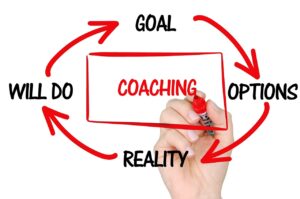Interested in learning how to improve using one’s intuition?
Ever get a gut feeling about something? Intuition often shows up as that gut feeling you get. And that feeling guides you towards what feels right or wrong without a deliberate thought process. It’s your innate ‘knowing’. An intrinsic ability that sometimes whispers and, at other times, screams what’s true through unspoken, instinctive cues.
Utilizing your intuition, or intuitive sense, is about learning to tap into and trust these feelings. It’s about tapping into YOUR inner guide that’s been honed (or maybe ignored…) over years of lived experiences and learned responses. It’s a skill highly intuitive people possess. And using it helps them discern next steps before they logically explain why. Everyone has this potent tool within.
By fostering it, you unlock a pathway to a more authentic and aligned existence. (Both personally and professionally.)
In this article, we’ll explore the foundations of intuition and the science that backs this powerful internal guidance system. We’ll also offer insights into how you can enhance your intuitive abilities, making it a critical skill that complements rational thought and influences better decisions in all areas of your life. This comprehensive guide aims to empower you to trust your gut instinct more. And then balance your innate wisdom with rational strategies to navigate the complexities of the world with confidence. 🙂
Table of Contents
ToggleUsing Ones Intuition
Making an important decision often involves weighing different options and considering various outcomes (duh).
But have you ever wondered about the role of intuition in this process?
According to research from the University of New South Wales, first impressions and gut feelings often lead us closer to the right answer than we might expect. This form of tacit knowledge, a type of understanding that we can’t easily express in words, plays a critical role in how we use intuition to navigate life.
The good news is that, as human beings, we’re naturally equipped with this ability. Intuition is not just an old wives’ tale (or lack of common sense) but an essential tool in our decision-making arsenal (in my opinion).
By recognizing the value of our first impressions and learning to trust our gut, we can refine our use of intuition through daily practice. But that’s the key: daily practice.
So, the next time you’re faced with a difficult choice, remember that intuition is your ally.
This post explores harnessing our innate intuitive abilities in different ways, enhancing our decision-making process and guiding us toward more informed choices in both our personal and professional lives.
To read more about honing in as a female entrepreneur, learn more about empowering yourself here.
Understanding Intuition
Like I already mentioned, intuition plays a role in our decision-making process, creativity, and understanding of complicated situations. It’s an interesting mix of past experiences, environmental cues, and subconscious processing. And it guides us quietly in the background, often without our conscious thought.
Here’s a deeper dive into the essence and types of intuition:
Essence
Quick Decisions and Environmental Cues: One time I had an ear infection, and it hurt every time I yawned. To reduce the pain of yawning, I held my jaw a bit while yawning to prevent my yawn from being too yawn’y. Even though this only happened once, I still hold this feeling in my body and am careful about opening my jaw too wide when I yawn.
This is a very specific example, but I hope it shows my point: when we have experiences it informs our future experiences.
We also get environmental cues all the time. Energetics in our family home, shifting of the wind before a cold front, creaking in our knees before the weather changes, stillness before the dog barks, etc.
Our brain leverages past experiences and environmental cues to make quick decision makers without our conscious awareness. This process is fundamental in adapting to dynamic and rapidly changing environments, providing us with an instinctive understanding of what’s important and what can be ignored.
Learn more about your authentic self.
Gut-Brain Axis: A significant scientific foundation of intuition is the gut-brain axis, highlighting a two-way communication system between our gut and brain. This connection explains the physical sensation often associated with intuition, emphasizing its biological basis .
Innate Intelligence: Described as an elusive form of intelligence, intuition is something we acquire through personal experience rather than deliberate learning. It’s an extension of our experience, with our everyday competence in areas like social customs or language acquisition based largely on this intuitive understanding.
Types
- Implicit Knowledge/Learning: This type is based on the skills and information we pick up unintentionally. It’s the subconscious knowledge that helps us navigate everyday life and make decisions without needing explicit reasoning.
- Energetic Sensitivity: This refers to our ability to pick up on the energy of people, places, and situations. It’s an intuitive understanding that goes beyond the physical, tapping into the emotional and energetic realms.
- Nonlocal: A more mystical aspect of intuition, nonlocal, involves an understanding or knowledge that seems to come from beyond our immediate environment or experiences. It’s often described as a form of universal consciousness or connectedness.
Understanding and nurturing your intuitive ability can enhance your decision-making, creativity, and personal growth. It’s a powerful tool that, when balanced with rational thought, can lead to more aligned and authentic choices in both personal and professional spheres. (Read more about holistic business approaches.) Whether it’s a strong instinct about a decision, unexplained feelings, or flashes of insight, tuning into your intuitive sense can unlock new levels of understanding and potential.
The Science in Using Ones Intuition
Diving into the science reveals a fascinating interplay between different parts of our brain and our emotional state. Let’s explore how these elements come together to harness the power of intuition:
The Brain’s Trio and Emotional Influence:
The human brain comprises three parts: the primitive, emotional, and rational.
Emotions significantly influence the rational brain’s functioning, showcasing how our feelings can sway our logical thinking processes.
This intricate relationship between different brain parts and emotions shows the importance of understanding how intuition is rooted in both our biology and psychological experiences. It is physical and mental!
Communication Pathways and Intuition:
Here is the process by which our thoughts are internalized into our bodies:
- Our body and mind communicate via emotions, with these feelings detected by the heart and then transmitted to the brain through the vagus nerve pathway.
- Positive emotions facilitate a state of relaxation, allowing the primitive, emotional, and rational parts of the brain to collaborate harmoniously. This synergy is crucial for accessing our memory center and highest cognitive functions, enabling us to tap into implicit intuition.
- Implicit intuition, representing the sum of all our beliefs, experiences, and memories, becomes more accessible in a positive emotional state, illustrating how our subconscious knowledge is intertwined with our emotional well-being.
Intuition and Decision-Making:
Our mental processing is majorly governed by the intuitive, unconscious mind, which quickly forms conclusions based on what seems plausible at the moment.
The Recognition-Primed Decision Model (RPD) explains how we link perceived cues to patterns and ‘action scripts’, enabling us to make decisions swiftly without re-evaluating all options.
Intuition proves more effective for unstructured problems lacking clear decision rules, making it more it more valuable in uncertain scenarios. This effectiveness rests on the individual’s prior knowledge and cognitive abilities, pointing to the personalized nature of intuitive decision-making.
Understanding the science allows you to harness its potential more effectively. By recognizing the role of emotions, brain function, and decision-making processes, you’re better equipped to trust and develop your intuitive sense, leveraging it as a powerful ally in navigating life’s complexities.
Enhancing Your Intuitive Abilities
Enhancing your intuitive abilities is a journey that requires patience, practice, and a bit of guidance. Here are some effective strategies to help you tap into and strengthen your intuitive sense:
Develop Emotional Intelligence and Self-Awareness:
- Emotional Intelligence: Distinguish between intuitive understanding and personal feelings to make supportive choices. This foundation is crucial for trusting yourself.
- Self-Awareness: Acts as a stabilizer, maintaining balance. It’s essential for understanding your inner signals and reactions, contributing to intuitive decision-making.
Meditation and Mindfulness Practices:
- Meditation: Regular meditation quiets the mind, allowing for a better connection with your intuitive thought. It enables you to hear and interpret messages from your inner self more clearly.
- Mindfulness: Slowing down and listening to your inner voice, practicing mindfulness, and engaging in activities like journaling, drawing, or spending time in nature can amplify your intuitive thinking.
Practical Exercises to Enhance intuitive thinking:
- Dream Analysis: Keep a dream journal to record and analyze dreams for insights into subconscious thoughts. Dreams can be a rich source of intuitive information.
- Active Listening and Observation: Practice active listening to pick up on subtle cues. Paying attention to the five conventional senses can raise sensitivity to the sixth sense—intuition.
- Energy Reading: Learn to sense the energy around people, objects, and places. This can help develop clairvoyance and other psychic abilities.
-
Intuitive experiences in Decision-Making: Trust your first impression, listen to your body for physical sensations, and seek feedback from others. Testing options in practice or simulation can also be beneficial.
- Creative Activities: Engage in activities such as drawing, scrapbooking, or free-flow journaling to quiet the cognitive mind and allow your intuition to speak up.
By integrating these practices into your daily life, you can enhance your intuitive abilities, making it easier to navigate through life’s decisions with confidence and ease. Remember, developing intuition is a personal journey that unfolds differently for everyone. Trust the process, and be open to the insights and guidance you learn.
The Role of Emotions and Environment
Understanding the intricate dance between our emotions, environment, and intuition can significantly amplify our intuitive experiences. Here’s how emotions and our surroundings play a pivotal role in shaping our intuitive sense:
Emotional Impact on Intuitive Decisions:
- Positive Emotions and Success: Studies show that participants anticipated stronger positive emotions following successful intuitive choices compared to non-intuitive choices. This suggests that trusting your gut can not only lead to successful outcomes but also enhance emotional well-being.
- Self-esteem and Responsibility: Making successful intuitive choices can lead to an increase in self-esteem and a sense of responsibility for the outcomes. This is because individuals attribute the success of an intuitive decision to their own intuition or inner wisdom or inner knowing.
- Consequences of Ignoring Intuition: On the flip side, disregarding your heart’s desires and gut feelings can lead to emotional distress. This stress, in turn, can heighten susceptibility to physical illnesses, illustrating the deep connection between our emotional health and intuition.
Environmental and Situational Influences:
- Emotional Connection to Spaces: When making decisions, like choosing a house, a strong emotional connection to the right place can be a powerful intuitive indicator. Feeling a positive emotional response that feels right, even if it contradicts logical data, can be a sign of your intuition guiding you.
- Intuitive Impressions and Energy: Sensing positive energy and visualizing potential happiness in a space can also be intuitive cues. These impressions often stem from an energetic sensitivity to our environment, guiding us towards decisions that align with our inner selves.
Balancing Emotions and Intuition:
Recognizing and understanding your emotions is crucial for intuitive decision-making. Emotions can either cloud our judgment or provide valuable insights, depending on how we interpret and act on them. It’s essential to distinguish between intuitive understanding and personal feelings to make choices that truly support our well-being and goals.
By acknowledging the significant role emotions and environment play in our intuitive processes, we can better navigate our inner landscapes. This understanding enables us to make more aligned and authentic decisions, using our intuitive sense as a trusted guide through life’s choices.
Balancing with Rational Thought
Decision making is about striking the right balance between intuitive ability and rational thought. Here’s how you can navigate this balance effectively:
Fast-Paced Decisions:
- In scenarios where time is of the essence, allow your intuitive thought to lead. This approach is logical and efficient, preventing issues with less deliberation.
- For entrepreneurs facing high-stake decisions, sharing or delegating decision-making can add a healthy blend of intuitive and rational insights.
Structured Environments:
When dealing with regulatory or technical standards, start with a rational approach to ensure compliance and due diligence.
In public or under scrutiny situations, rationality ensures that decisions are defensible and meticulously thought out.
Team Dynamics:
For remote, intact, or interdisciplinary teams, initiate with an intuitive approach, transition to rational analysis, and conclude with a collective intuitive insight. This sequence fosters creativity and consensus.
Evaluating and Integrating with Logic:
- Evaluate: Recognize that while intuition can significantly benefit decision-making, it can also be biased or misleading. Similarly, logic can be flawed or incomplete.
- Apply Logic: Understand that a rational approach is more precise, albeit at a higher cost. Intuitive decision-making, on the other hand, spares these costs but may lack precision.
- Integrate: Combine with logic for enhanced decision-making. This synergy leads to better outcomes, especially in today’s complex business environment .
- Monitor and Review: Always assess the outcomes of your decisions. Consider both short-term and long-term implications. Then learn from both the intended and unintended consequences.
Acknowledge the strengths and limitations of both intuitive and rational thought. Then, you navigate decision-making with a more nuanced and effective strategy.
Conclusion
In conclusion, intuition is not just a mystical concept but an innate ability deeply rooted in our psychological framework. This very real psychological process guides us toward the best choice in a world filled with hard decisions.
Sometimes we have a hard time putting our trust in something as intangible as intuition. But remember the power it holds in navigating difficult decisions. Intuition should not be the deciding factor, but it’s a valuable starting point that complements our logical reasoning.
By acknowledging the role of intuition, we open ourselves to a more meaningful life, one where we can create a safe space for both our logical conclusions and our intuitive feeling to coexist.
This balanced approach can steer us away from bad decisions and potentially big losses, ensuring that we make the most informed and heartfelt choices in any given situation.
References
- https://positivepsychology.com/intuition/
- https://www.skillshare.com/en/blog/a-guide-to-developing-intuition-12-ways-to-tap-into-your-inner-knowing/
- https://positivepsychology.com/intuition-training/
- https://lithub.com/gut-feelings-how-does-intuition-work-anyway/
- https://longevity.technology/lifestyle/the-importance-of-intuition-in-physical-and-emotional-wellbeing/
- https://readingraphics.com/book-summary-the-power-of-intuition/
- https://hbr.org/2015/04/when-its-safe-to-rely-on-intuition-and-when-its-not
- https://synctuition.com/blog/five-benefits-developing-trusting-intuition/
- https://www.quora.com/What-exactly-is-intuition-and-how-important-is-it-for-decision-making
- https://en.wikipedia.org/wiki/Intuition
- https://www.scientificamerican.com/article/can-we-rely-on-our-intuition






